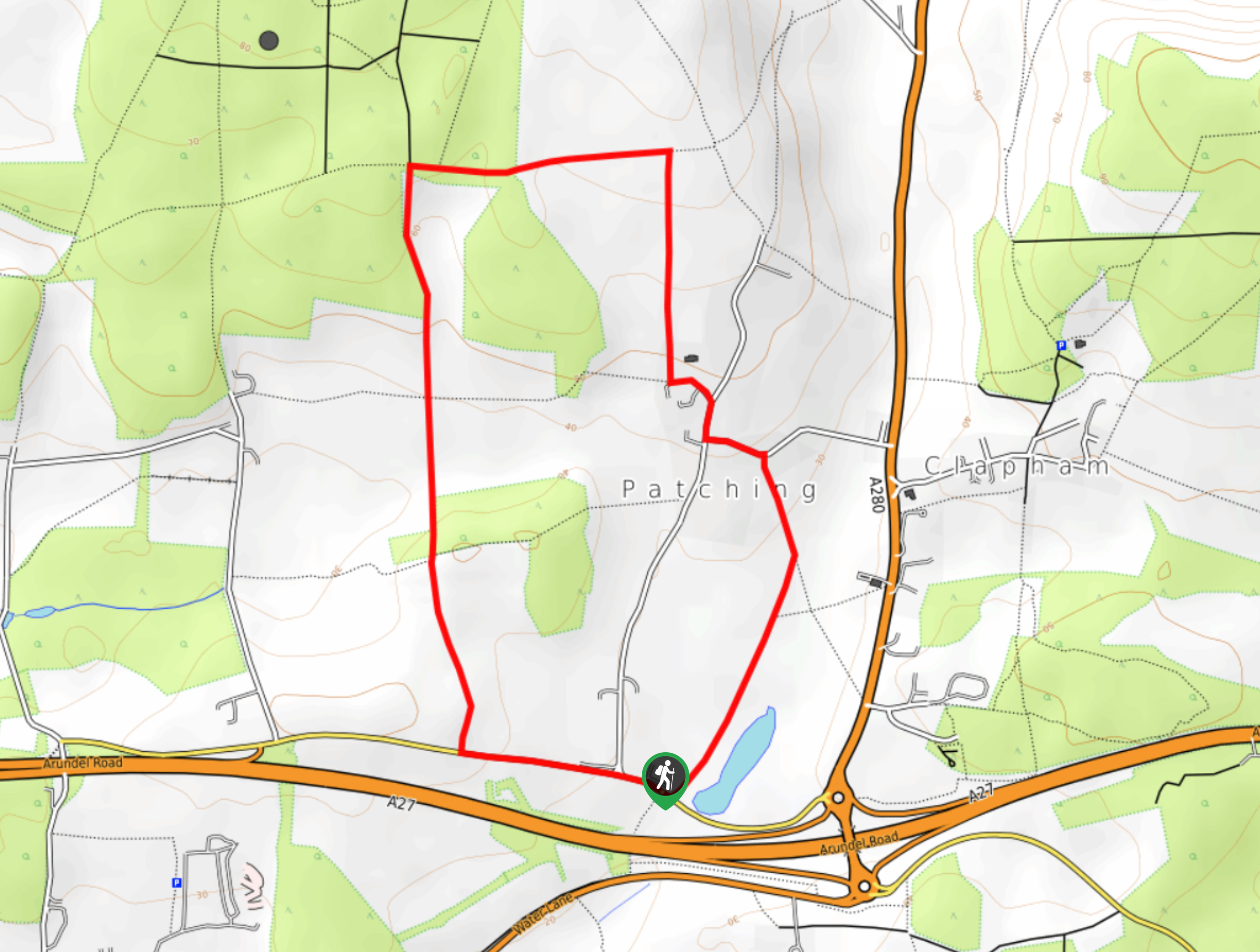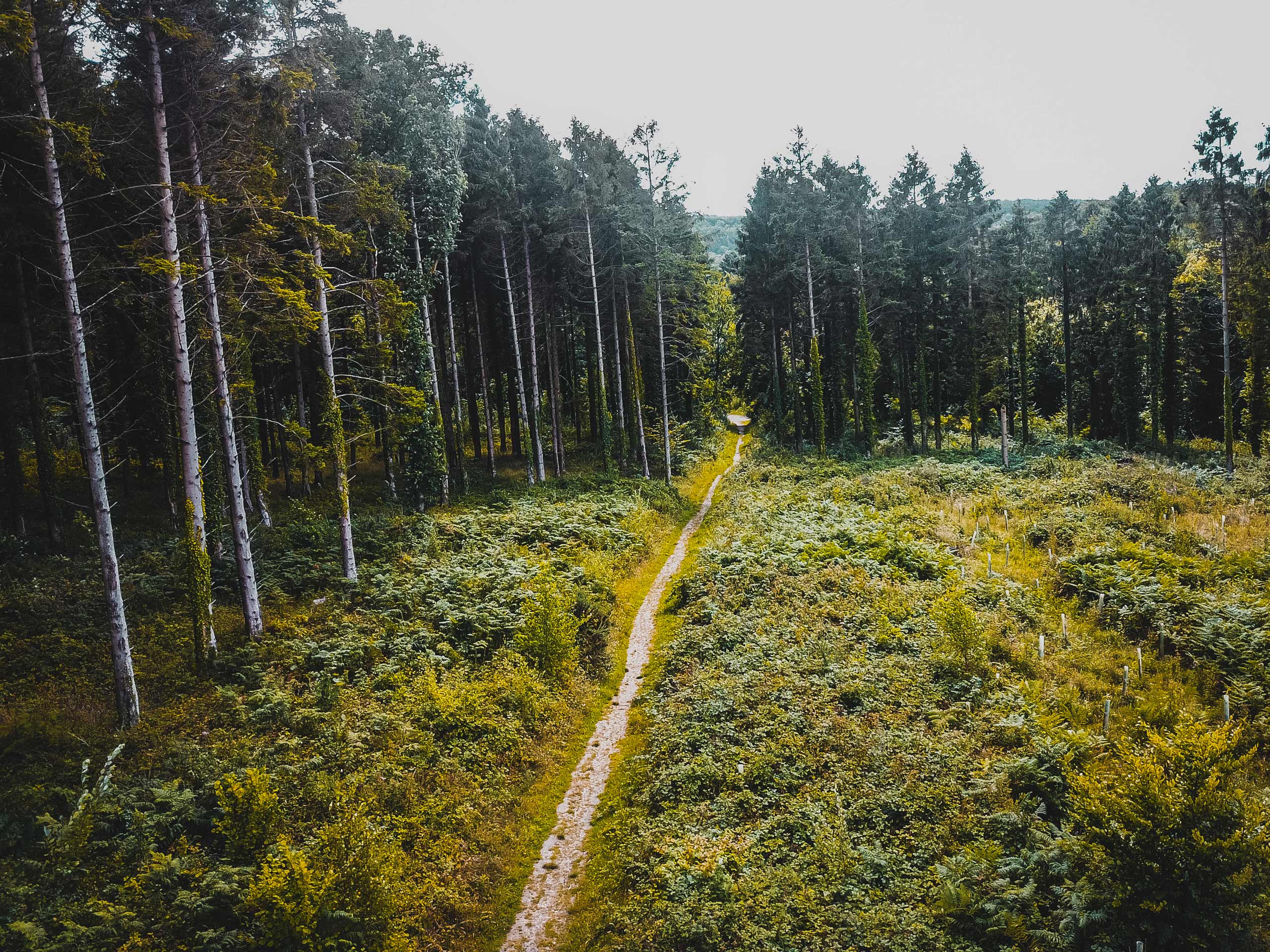


Kingley Vale Walk
View PhotosKingley Vale Walk
Difficulty Rating:
Kingley Vale is a very unique walk in West Sussex that takes you to views over Hampshire, Sussex, and the South Coast. As you walk through this path, you will be surrounded by 2000-year-old yews, which are some of the oldest living organisms in Great Britain. This walk is very popular among tourists and locals alike, and if you are lucky, you may find a spent bullet along this trail, as this area was used as a World War II training area.
Getting there
To get to the Kingley Vale Walk from West Stoke, head northwest on Downs Road toward Lye Lane for 0.6mi, and you will arrive at the carpark.
About
| When to do | April - October |
| Backcountry Campsites | No |
| Pets allowed | Yes |
| Family friendly | Yes |
| Route Signage | Average |
| Crowd Levels | Moderate |
| Route Type | Circuit |
Kingley Vale Walk
Elevation Graph
Weather
Kingley Vale Walk Description
The Kingley Vale Walk takes you on a stunning path that showcases views of South Downs National Park, as well as Sussex, Hampshire, and the coast. There are some steep inclines during this walk and there are numerous gates and stiles that you will have to navigate. Make sure to be prepared and wear proper footwear.
Beginning at the car park, walk north and head towards the kissing gate. Follow the track for about 0.6mi until you reach the gate. This is the beginning of Kingley Vale. Do not head into the park, instead, follow the path on the right and walk for 1772ft. If you are lucky, you may catch glimpses of a sunflower field along this stretch. You will come across a four-way footpath fingerpost, where you will turn left. Continue uphill for 1739ft, where you will come across the Kingley Vale information board and begin seeing some of the sights of the coast that this path is famous for.
Turn left and climb a bank and navigate a stile. As you continue, the path is a bit difficult but eases, and you will veer right and head into a tunnel of stunning ancient yew trees. After the tunnel, you will come across a kissing gate, which you will negotiate and then turn left, where you will see the Devil’s Humps. From here, you can see magnificent views of the coast and the Isle of Wight. Walk past the humps after taking in the views and find a chalky path, turn right and navigate two five-bar gates.
In 2493ft, you will come across a T-junction, where you will turn left. Follow the markers and you will catch a glimpse of the Chichester Harbour and find yourself at another T-junction, which you will turn right. Continue to the woods and wander through here on the path until you reach a road. Turn left at the road junction and walk for 1083ft. You will come across a two-way fingerpost and turn down the track where the black and white traffic prevention sign is.
Walk for 2428ft and when you see the left track that has the wire fence along it, do not follow this but follow the path parallel to it that you have been on. At the next left, follow this path along the wire fence and in 1148ft, you will come to a road. A one-way fingerpost will appear, turn left onto the road and walk for 410ft to a T-junction. Turn left to get to the National Nature Reserve car park and the car park where you began will come into view in 131ft.
Trail Highlights
Devil’s Humps
The Devil’s Humps are four Bronze Age barrows that are known as the King’s Graves. These graves are rumoured to be the final resting places of Vikings and are hiding buried treasures. In 1853, one of the Devil’s Humps was excavated (although this was not the first time), and revealed many artifacts, such as burnt bones resting on burnt earth, a whetstone, a horse’s tooth, pottery sherds and stag horns, all of which are housed in the British Museum.
Frequently Asked Questions
Is the Kingley Vale and Woodend Walk kid-friendly?
Yes, the Kingley Vale Walk is kid-friendly, just be mindful of some steep inclines.
Is the Kingley Vale Walk dog-friendly?
Yes, the Kingley Vale Walk is dog-friendly, just be mindful of the stile and gates to be passed.
Is there a cost to enter Kingley Vale?
No, there is no fee to enter and walk the path in Kingley Vale. It is managed by Natural England and they allow guests to roam for free.
What is the closest town to the car park?
The closest town to the car park for the Kingley Vale Walk is West Stoke. It is a small town, which makes finding the car park easy.
How long is the Kingley Vale and Woodend Walk?
The Kingley Vale Walk is 5.0mi long and takes approximately 2.5 – 3.5 hours to walk.
Can I eat the berries on a yew tree?
Although the berries look delicious, the center of them and the actual yew tree itself is poisonous.
Insider Hints
Wear proper walking shoes as some areas of this walk are steep.
Do not eat the yew berries even though they may look appetizing.
The Kingley Vale Walk is part of the South Downs National Park and there are many other walks nearby.
Head to the West Dean Gardens, which is beautiful.
Tangmere Military Aviation Museum, which is a legendary battle of Britain fighter station.
Stop at the Cote Brasserie for a delicious French meal.
Similar hikes to the Kingley Vale Walk hike

Avington and Ovington Walk
Meander through lovely countryside fields and across bridges leading you over rivers carved into the stunning South Downs landscape on…

Worlds End and Patching Circular Walk
The Worlds End and Patching Circular Walk is a great path for the whole family, thanks to the gentle gradient…

Halnaker Circular Walk
The Halnaker Circular Walk is a beautiful stroll filled with open meadows, woodland and stunning scenery. There are stiles and…



Comments